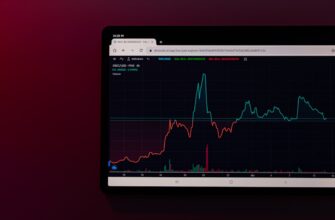🔐 USDT Mixer — Total Privacy for Your Crypto
Experience fast and secure USDT TRC20 mixing. 🌀
No accounts. No records. Just full anonymity, 24/7. ✅
Service fees start at only 0.5%.
## Introduction
Airdrops have become a popular way for cryptocurrency projects to distribute tokens to users, but many Canadians are unaware these “free” assets come with tax obligations. Understanding how to properly report and pay taxes on airdrop income in Canada is crucial to avoid penalties from the Canada Revenue Agency (CRA). This comprehensive guide explains everything from tax classifications to filing procedures, ensuring you stay compliant while navigating this emerging aspect of crypto taxation.
## What Are Cryptocurrency Airdrops?
Airdrops occur when blockchain projects distribute free tokens or coins to wallet addresses, typically to:
– Reward existing token holders
– Promote new projects
– Decentralize token ownership
– Incentivize network participation
Unlike mined or purchased crypto, airdrops are unsolicited distributions where recipients don’t provide payment or services. Common types include holder airdrops (based on existing holdings), fork airdrops (from blockchain splits), and promotional airdrops.
## Are Airdrops Taxable in Canada?
**Yes.** The CRA treats most airdrops as taxable income under these key principles:
1. **Income Inclusion**: Tokens received are considered ordinary income at their fair market value (FMV) on the date of receipt
2. **Taxable Event**: Taxation occurs upon receipt, not when sold
3. **Business vs. Personal**: Frequent airdrop participation may classify you as a business, making all crypto activities taxable as business income
The only exception applies if:
– Tokens have zero market value at receipt
– You’re ineligible to legally own/transfer them
## Calculating Your Airdrop Tax Obligations
Follow this step-by-step process:
1. **Determine Receipt Date**: Identify the exact date tokens appeared in your wallet
2. **Establish Fair Market Value**: Use reputable exchange prices in CAD at time of receipt
3. **Convert to CAD**: Calculate value using Bank of Canada exchange rates if needed
4. **Classify Income Type**:
– **Personal**: Report as “other income” on Line 13000
– **Business**: Include in gross business income if airdrops are frequent
5. **Track Cost Basis**: Your acquisition cost = FMV at receipt (used later for capital gains)
*Example*: Receiving 500 XYZ tokens worth $0.20 each = $100 taxable income. If sold later for $150, you’d pay capital gains on $50 profit.
## Reporting Airdrops on Your Tax Return
### For Personal Income
– Report FMV under “Other Income” (Line 13000)
– Attach explanation: “Crypto airdrop income”
– Keep detailed records including:
– Token name and amount
– Receipt date and timestamp
– FMV source documentation
– Wallet addresses
### For Business Income
– Include in gross business income (Form T2125)
– Deduct eligible expenses (wallet fees, transaction costs)
## Tax Implications When Selling Airdropped Tokens
Selling airdropped tokens triggers capital gains tax:
1. **Capital Gain Calculation**:
Selling Price – Cost Basis (FMV at receipt) = Capital Gain
2. **Tax Rate**:
50% of capital gains are taxable at your marginal rate
3. **Reporting**:
– Complete Schedule 3
– Report on Line 17400 (capital gains)
## Common Mistakes to Avoid
– **Ignoring small airdrops**: All airdrops require reporting regardless of value
– **Using incorrect valuation**: FMV must reflect the exact receipt time
– **Missing documentation**: Maintain records for 6 years post-filing
– **Confusing income/capital gains**: Remember: receipt = income event, sale = capital event
– **Omitting foreign airdrops**: Global distributions are still Canadian-taxable
## Frequently Asked Questions (FAQ)
### Do I pay tax if I never sell my airdropped tokens?
Yes. Tax applies upon receipt based on FMV, regardless of whether you hold or sell later.
### How do I value tokens with no immediate market?
Use the first verifiable market price after receipt. If unavailable for 72 hours, value at $0 but document thoroughly.
### Are NFT airdrops taxable?
Yes. NFTs are treated like crypto assets – value them at FMV upon receipt.
### Can I deduct gas fees paid to claim an airdrop?
Only if classified as business income. Personal taxpayers cannot deduct claiming costs.
### What if I received an airdrop years ago but didn’t report it?
File a T1 Adjustment Request immediately. Voluntary disclosures may reduce penalties.
## Proactive Tax Planning Tips
1. **Use crypto tax software**: Tools like Koinly or CoinTracker automate calculations
2. **Segregate wallets**: Dedicate one wallet for airdrops to simplify tracking
3. **Consult professionals**: Seek CPA advice for complex situations or large airdrops
4. **Quarterly installments**: Business recipients may need to pay taxes quarterly
## Conclusion
Treating airdrops as tax-free windfalls can lead to severe CRA penalties including interest charges and audits. By recognizing airdrop income at fair market value upon receipt, maintaining meticulous records, and correctly classifying activities, Canadians can confidently navigate this evolving tax landscape. As crypto regulations mature, staying informed through CRA guidelines and professional advice remains your best strategy for compliance.
🔐 USDT Mixer — Total Privacy for Your Crypto
Experience fast and secure USDT TRC20 mixing. 🌀
No accounts. No records. Just full anonymity, 24/7. ✅
Service fees start at only 0.5%.








